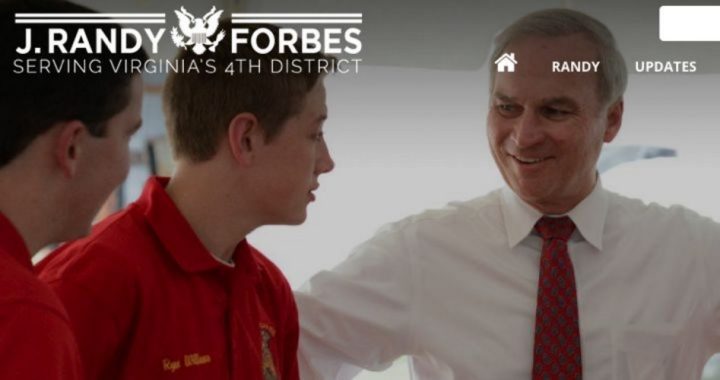
After more than a quarter century in elected office — and more than 15 years in the U.S. House of Representatives, Congressman Randy Forbes is out of a job. His pink slip came in the form of a primary defeat when State Delegate Scott Taylor challenged him as he was attempting to switch districts. Among the reasons for the soon-to-be-former congressman’s defeat, there is one that cannot be overlooked: Forbes’ support for the Trans-Pacific Partnership (TPP).
In a move typical of too many politicians, Forbes tried to have it both ways. He voted for fast tracking the disaster-waiting-to-happen trade agreement, then said he would support it only if it were amended, ignoring the fact that his vote for fast track killed any chance of Congress amending the TPP.
When the lines of Virginia’s Fourth Congressional District were redrawn, causing Forbes to lose the most supportive portions of his district, he decided to seek what he hoped would be greener pastures. Instead of running in his old district, Forbes set his eye on Virginia’s Second Congressional District, sure that his full campaign coffers and well-known name would assure him a victory.
Former Navy Seal-turned-State Delegate Scott Taylor proved him wrong.
Taylor ran on a platform of opposing the TPP, which pitted him against the establishment, “with several local elected officials as well as departing U.S. Rep. Scott Rigell endorsing Forbes’ candidacy,” according to a report by the Virginian-Pilot. The article continued, “Rigell rented Forbes his former headquarters on First Colonial Road and sold him his email lists of supporters.”
This is not Taylor’s first run-in with Riggell. In 2010, Taylor ran against Riggell in a primary for this same district. Riggell has held the seat since winning both that primary and the election. He announced in January that he would not be running for reelection. The timing of his decision and his support of Forbes’ decision to leave his own (now less-friendly) district and run for Riggell’s soon-to-be vacant seat seem to indicate that politics-as-usual was at play.
With the establishment against him and little money for his campaign, Taylor relied on the grassroots efforts of those who, like himself, understand just how dangerous “free-trade” agreements such as the TPP are. As WorldNetDaily reported:
Taylor has a clear understanding of what’s at stake with TPP.
He scorched the deal for failing to address currency manipulation, outlawing Buy American programs, letting foreign state-owned enterprises bankrupt American businesses and undermining American rule of law by setting up a separate-but-unequal court system for foreign corporations.
The voters responded to Scott Taylor’s bugle call.
Indeed they did. Forbes outspent Taylor by a ratio of nearly 10 to one. As the Virginian-Pilot reported:
Forbes, who started his pivot from the 4th District to the 2nd with an incumbent’s healthy campaign fund, spent more than $1.3 million in the primary compared with the little more than $142,000 that Taylor reported spending as of late May.
There is a lesson here, if the establishment will listen: Keep it up and your days are numbered. Someone will run against your candidates. If that someone supports what is best for this country and runs a campaign to educate the voters on those issues, your candidate can join Forbes in an early retirement.
Come to think of it, Taylor made a double-play. If elected in November, he will replace both Riggell (who vacated his seat) and Forbes. Two establishment politicians for the price of one. That’s a pretty good trade-off in the humble estimation of this Virginian.




